Cough treatment (dry and severe cough treatment)
Coughing is a natural phenomenon and the body’s defense mechanism that prevents the entry of external stimuli such as dust particles and flower pollens into the trachea and respiratory tracts and plays an important role in cleaning the body from various stimuli, attacks and infections. Coughing in itself is not alarming or bad, it is even a sign of a healthy respiratory system and clears the throat and lungs. But coughs are not always normal, sometimes after contracting various diseases such as colds, flu, sinusitis, seasonal allergies, and corona and Sars viruses, we get a dry cough.
Dry cough is also known as non-productive cough in medical terms and it is a cough without sputum which is generally caused by infection of respiratory organs. Most dry coughs are the result of an illness such as corona, asthma and allergies, whooping cough, flu, sinusitis or sore throat.

A dry cough cannot remove mucus secretions from your lungs or nasal passages, and it usually stays with you for a longer period of time.
In addition to viral and infectious diseases, dry cough can also be seen in patients with allergies, asthma, and acid reflux. Also, chronic dry cough occurs due to long-term exposure to polluted air, environmental toxins, cigarette smoke, and in some cases, after taking ACE inhibitor drugs such as enalapril and lisinopril.
Dry coughs can occur in any age group and are much more annoying than wet coughs. Usually, in autumn and winter, when the air is dry, cold and more polluted, dry coughs are more frequent and last longer.
Cough symptoms
Dry cough is very harsh, sharp, annoying and irritating. The most important symptoms associated with dry cough are:
- There is an itchy sensation in the respiratory tract.
- Burning sensation and pain in the throat and chest
- wheezing
- Continuous cough without mucus.
- Aggravation of cough at night and when lying down
- Waking up with a feeling of suffocation or coughing
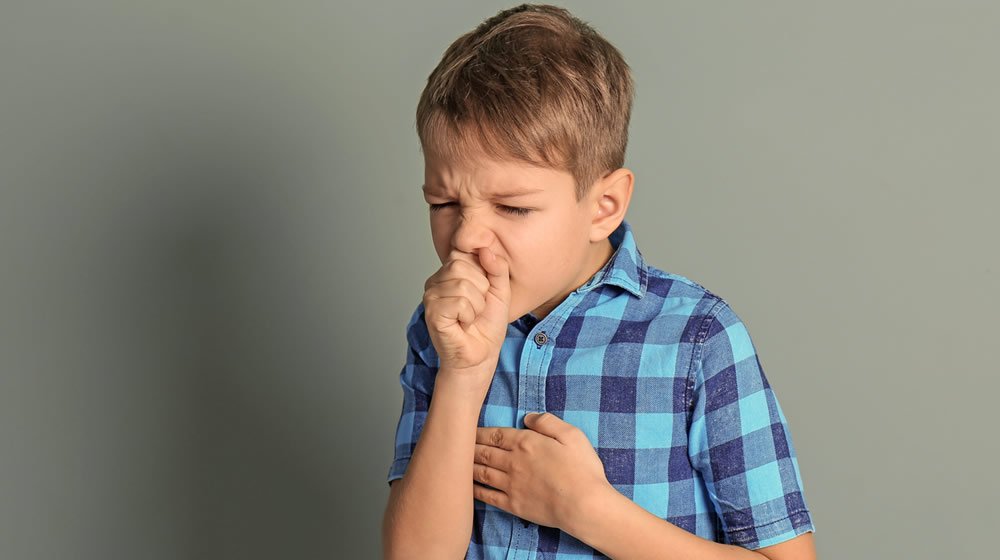
Causes of dry cough
A chronic, dry cough is usually caused by one of the following:
- cigarette smoke
- Backflow of stomach acid into the esophagus
- Environmental factors
- allergy
- nasal discharge
- Sinusitis
- Viral diseases
- Asthma
- Blood and internal infections
- Chronic lung diseases
- whooping cough
- Pneumothorax disease
- Lung cancer
- Heart failure
- Idiopathic pulmonary fibrosis
- smoking
- Long-term exposure to pollution
- Inhalation of dust and chemicals
- allergy
- Use of certain medications, such as ACE inhibitors for high blood pressure
Cough treatment (several drug, home and herbal solutions)
Dry cough can usually be controlled and even cured with herbal and home remedies. In medical treatments, it is prescribed for all kinds of anti-congestion drugs in the form of pills, anti-cough syrup and inhalation drugs in the form of sprays and oxygen therapy to reduce congestion in the nose, sinuses and respiratory tracts. Note that we recommend never using decongestants for children under 12 years old (especially children under 2 years old). Because it increases heart rate and convulsions in children.
Home remedies and herbs
1. Drinking lemon honey tea to treat dry cough
Natural honey can soften the throat and relieve dry cough to the desired extent. Honey has antibacterial properties, and also with its laxative effect, it can soften the throat walls, which are irritated by persistent and dry coughs and feel scratched. Also, with its anti-inflammatory and antibiotic properties, honey can control and reduce throat inflammation and congestion. The best way to use honey to treat dry cough is honey tea or warm water with honey. Just mix 1 tablespoon of natural honey with warm water and a few drops of lemon and eat this mixture once or twice a day. Note: never give honey to children under 1 year old because there is a possibility of allergic reaction or botulism in babies.
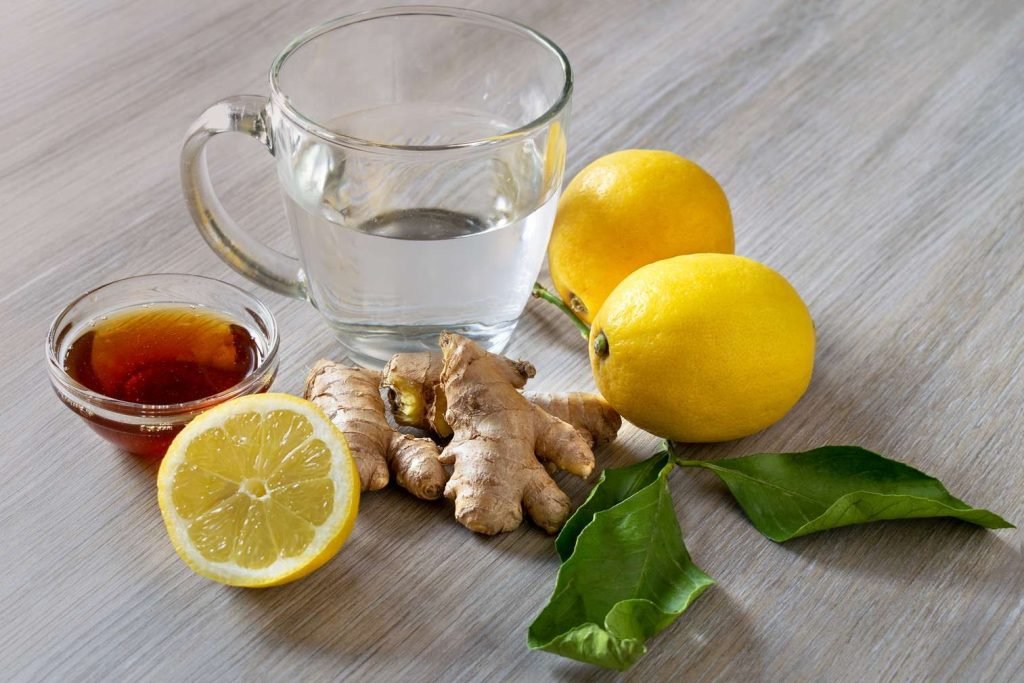
2. Using turmeric to treat dry cough
Turmeric contains curcumin, a compound that has anti-inflammatory, anti-viral, and anti-bacterial properties, and works great to treat dry cough. The combination of a little black pepper with turmeric causes better absorption of curcumin and is more effective in the herbal treatment of dry cough. For this medicinal solution, you can add a teaspoon of turmeric and an eighth of a teaspoon of black pepper to a drink such as cold orange juice or milk and drink it. This combination has been used in the past to treat upper respiratory conditions. Bronchitis disease and asthma was used.
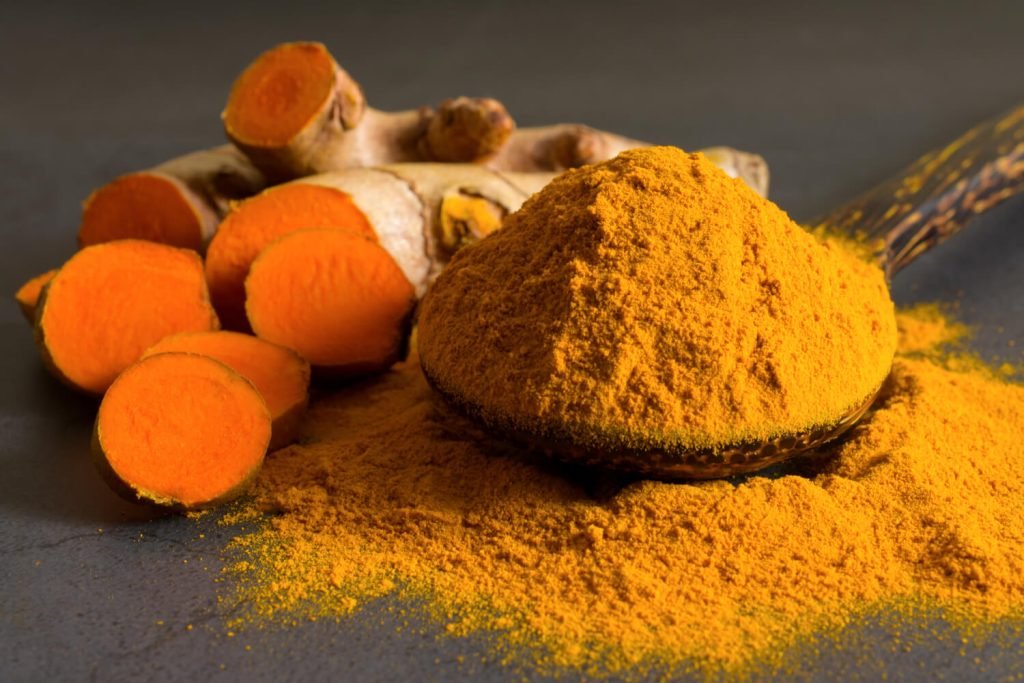
3. Use of incense to treat dry cough
Dry air aggravates dry coughs and congestion of your respiratory tract, so it is recommended to use a humidifier to humidify the air. You can put a pot on the stove and let it boil on low flame and generate steam. You can also add eucalyptus leaves, mint or thyme to the vaporizer or hot water pot, these plants will make the air feel fresh and open your respiratory tract.
4. Gargle with salt water
Gargling warm salt water can significantly prevent throat and lung infections. If you suffer from a dry cough, make sure to gargle the combination of warm water and salt twice a day. In addition to relieving the discomfort and irritation caused by a dry cough, it also reduces the bacteria in the mouth and throat to a significant extent. give For this purpose, dissolve a teaspoon of salt in a glass of warm water and then gargle it several times a day.

5. Mint and ginger tea
Mint has anti-inflammatory properties and relieves burning and itching caused by dry cough. Ginger is also one of the medicinal plants that is very effective for the home treatment of dry cough with its softening and opening of the respiratory tract. Ginger softens the throat and respiratory tract and makes it easier for the infected mucus in the lungs to come out. To use this combination, you can combine two tablespoons of fresh and chopped ginger with one tablespoon of dry or fresh mint with a glass of water in a teapot and let it brew on the kettle. After half an hour, you can combine this tea with a little honey and drink it at different times of the day.
6. Marshmallow root herbal treatment for dry cough
Marshmallow root has been one of the herbal remedies for the treatment of whooping cough and lung ailments since the past. Today, this plant is available in pharmacies in the form of cough syrup and tablets. You can also prepare marshmallow root from the apothecary and boil it in the form of tea with warm water and honey. This combination is very useful for treating cough. Marshmallow root also has antibacterial properties that can heal sore throats caused by persistent and dry coughs.
7. Dry cough treatment with carrot juice
Carrot juice softens the throat and chest, and the presence of fiber and various vitamins and nutrients in carrots makes this food act as a strong antioxidant. As a result of consuming carrot juice, dry cough and wheezing are reduced. You can consume carrot juice alone or mix it with some warm water and honey and drink it 3-4 times a day.

8. Treatment of dry cough with masala tea
Masala tea contains several strong antioxidant substances such as cinnamon, cloves and cardamom and has a strong anti-inflammatory effect, so in addition to reducing the effects of dryness and burning throat, it also acts as an expectorant.
9. Treatment of dry cough with thyme
Thyme has many medicinal properties and is used to treat diseases such as cough, sore throat, bronchitis (lung inflammation), digestive problems and cleansing the intestines.
Today, anti-cough syrups containing thyme are available in pharmacies and are very effective as a herbal syrup for treating chronic and dry coughs.
Also, you can use thyme tea to treat cough and soothe irritated throat. Just add two teaspoons of dry thyme to a cup of hot water and put a lid on it, and after 10 minutes pass the solution through a strainer and drink it with a little honey.
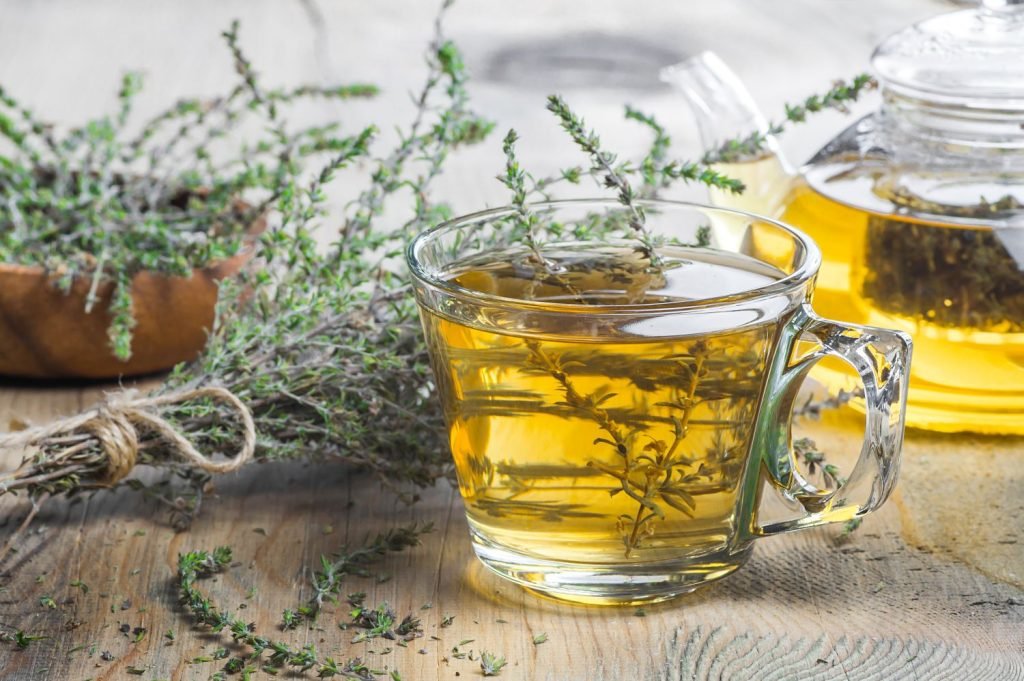
10. Seeded tea
The seed of the fruit is very useful for treating cough. Just mix the seeds with some warm water and let the desired mixture rest a little. The seed has laxative and softening properties and makes it glaze in the vicinity of water. This combination works wonders for soothing chest pain and dry coughs.
Compliance with the following can prevent the development of dry cough:
- quit smoking
- Stop drinking alcohol
- Reduce caffeine consumption
- Having a healthy diet
- Changing the place of residence to a better place
- Doing aerobic exercise
When should we see a doctor?
If you have the following symptoms along with a dry cough, you should see a doctor:
Presence of blood with mucus after coughing
Shortness of breath, wheezing and chest pain when coughing
Having fever and chills
Hoarseness and vocal chords
Nausea and feeling of suffocation due to coughing
Chronic headache, earache or neck pain
Weight loss and muscle pain
Prolonging the course of the disease and having a dry cough for more than two weeks
Also, people who have an underlying heart disease, or people with high blood pressure, asthma, and digestive diseases should see a doctor if they have a dry cough.
What kind of doctor should be consulted for the treatment of dry cough?
Internist, pulmonologist and otolaryngologist are the doctors you can refer to for the treatment of dry cough.

Prevent runny nose
How to prevent a runny nose
last word
Dry coughs can be caused by food allergies, if you have persistent and chronic dry coughs and your coughs worsen especially after eating, make sure to minimize the consumption of stimulating foods (especially foods containing a lot of spices). Also, if you are prone to respiratory allergies, avoid some foods that contain a lot of histamine, such as alcohol, sour foods, spicy foods, cheese, shellfish, and smoked meat.
Also, reflux or return of stomach acid to the esophagus can cause chronic dry cough. If this problem occurs, avoid high-fat foods, acidic foods (such as sour fruits and tomatoes), chocolate, caffeine, and spicy foods.
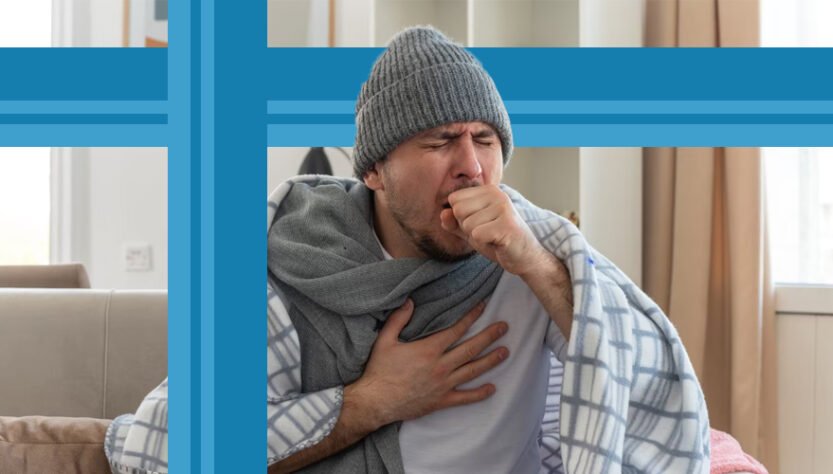
Thank you for this informative blog. It’s been very enlightening , and offered great insights. For those who are keen on the world of viral real estate SEO, make sure to explore for more information.
I am genuinely amazed by your profound understanding and stellar way of expressing complex ideas. Your expertise is evident in every piece you write. It’s evident that you invest a great deal of effort into delving into your topics, and this effort is well-appreciated. Thanks for providing such valuable insights. Keep on enlightening us!
What抯 Happening i’m new to this, I stumbled upon this I’ve found It positively helpful and it has aided me out loads. I am hoping to contribute & aid different users like its aided me. Good job.
I have seen lots of useful factors on your internet site about pcs. However, I have got the impression that laptop computers are still more or less not powerful sufficiently to be a good option if you usually do tasks that require lots of power, just like video editing and enhancing. But for net surfing, word processing, and many other typical computer work they are all right, provided you don’t mind your little friend screen size. Thanks for sharing your ideas.
I am genuinely amazed by your profound understanding and stellar way of expressing complex ideas. Your expertise is evident in every sentence. It’s evident that you put a lot of effort into delving into your topics, and this effort pays off. Thanks for providing such detailed information. Continue the excellent job!
I am genuinely amazed by the deep insights and stellar writing style. Your expertise is evident in each paragraph. It’s obvious that you invest a great deal of effort into researching your topics, and that effort is well-appreciated. Thanks for providing such valuable insights. Keep on enlightening us!
I’m truly impressed with your deep insights and excellent ability to convey information. The knowledge you share clearly stands out in every piece you write. It’s evident that you put a lot of effort into delving into your topics, and the results pays off. We appreciate your efforts in sharing such valuable insights. Keep on enlightening us!